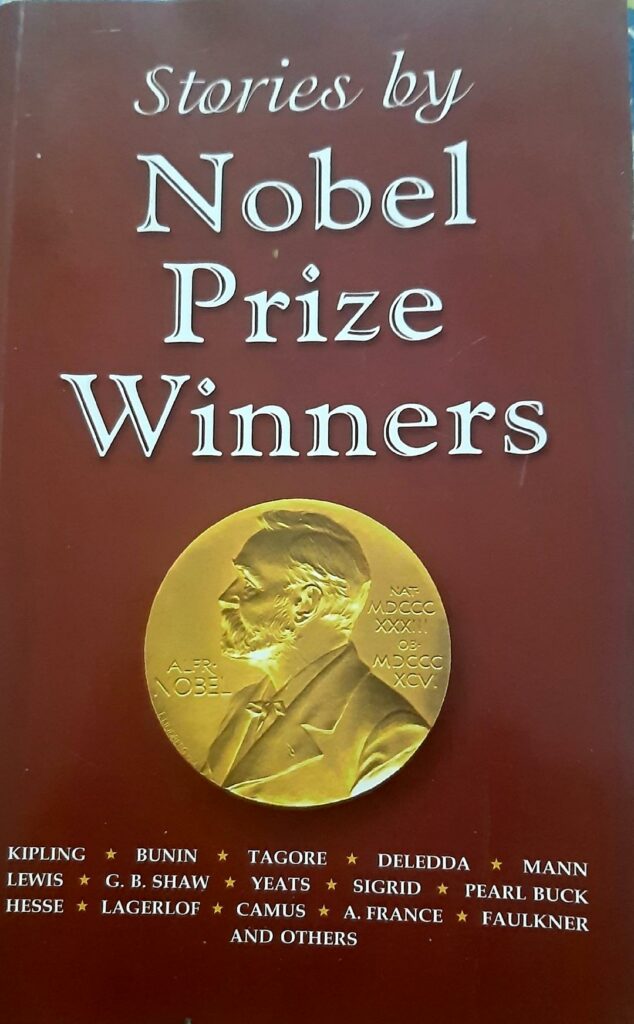
Picked up a copy of the book mentioned above from one of the largest bookshops in the city. Needless to say, it has been a rather life-changing experience reading through its contents. I would not like to comment on the stories, because, I am not qualified enough to comment on them (being the minuscule writer that I am). However, even though most of us tend to prefer bestsellers these days to classics, I would still recommend classics to all, as they are perhaps the only books that can not only touch the reader’s soul but also alter his or her perception about language in totality. Though each one of the writers whose works have been encapsulated in this slim volume is a writer par excellence, I would still like to mention William Faulkner in particular, whose usage of words intertwined with rich visual imagery will stay with the reader (haunting his or her mind) long after the story is over.
Words do matter. Writing is definitely not only about the plot and the characters. Words are perhaps the most important, to be closely followed by the rich imagery that the very same words create. If a writer can make the reader, see, smell, hear and feel things then the writer has truly been able to acquire all that he/she had ventured to accomplish in the first place.
So much for now.
Au revoir!
I wonder if Charles Dickens would have been awarded a Nobel prize for literature? Probably not. Every novel he wrote is brilliant, given that all of them were written for monthly publication, serialized over a long period. Life without Dickens is a tragic affair and life without Shakespeare is no life at all. Similarly Thackery, Fielding, Austen and the truly great Thomas Hardy, whose sensuous, poetic descriptive narrative immerses the reader in the world of tragic Tess and beautiful Bathsheba – the sounds, the smells and the images of rural Victorian England are alive. The Russians also. Tolstoy’s cinematic vision and scope, only he can write pages of narrative about wheatfields without a single word being boring. Dostoevsky’s deep darkness and humour (yes, there is much humour, albeit hidden to many not attuned to his innate Russian-ness), Chekhov’s ability to tell so much in so short a space, and my own particular favourite Sergei Aksakov’s beautiful semi-autobiographical trilogy ‘A Russian Gentleman’, ‘Years of Childhood’ and ‘A Russian Schoolboy’. There are many more, Gogol, Turgenyev and of course the incomparable Pushkin. Pasternak and Solzhenitsyn both won Nobel prizes of course, although I don’t care for Pasternak myself. Solzhenitsyn’s best work is wonderful.
John Fowles’ book ‘The Magus’ is a particular favourite, too, also ‘Daniel Martin’. Herman Hesse sits very high on my list of great writers, along with Camus and Nabakov.
Yes, words do matter and we should all read and write more of them.
Perhaps you are right, but then one doesn’t really know in case of Shakespeare or Dickens. Maybe they might have won it or maybe not. However, having said that, all the writers that you have mentioned above are definitely masters in their craft. I cannot pick one over the other. Wow ! You do have a large library at home it seems. It is wonderful to know someone so well read and who is also a wonderful writer 🙂
I haven’t read Faulkner in a while, but he has always been one of my favorites, especially for his use of language and the moods he creates with it. I noticed that the volume above lists Pearl Buck. I’ve read a couple of Buck’s novels recently and enjoyed them very much; her work is also one that creates vivid pictures but does so economically. Over the years, John Steinbeck is someone whose work I’ve returned to time and time again. His strength, in my view, is both in creating geographic settings and in bringing life to characters through dialogue. I think what draws me to all three of these writers is their deep interest in the common man and woman and their heroic struggles to hold family, kin, and clan together under circumstances which, it seems, might tear them apart.
They have been my favorites, and I would also add Camus to the list, though his writings are a bit surreal. Have you read Tagore? He is from my country and province too 🙂
No, I haven’t read Tagore, but I will have to look him up. Any titles of his in particular that you enjoy? Thank you!
The Red Oleander is wonderful. So is Gitanjali 🙂
“Be still, my heart, these great trees are prayers” I already understand why you have suggested Tagore. He is a true master.
Glad you like him 🙂